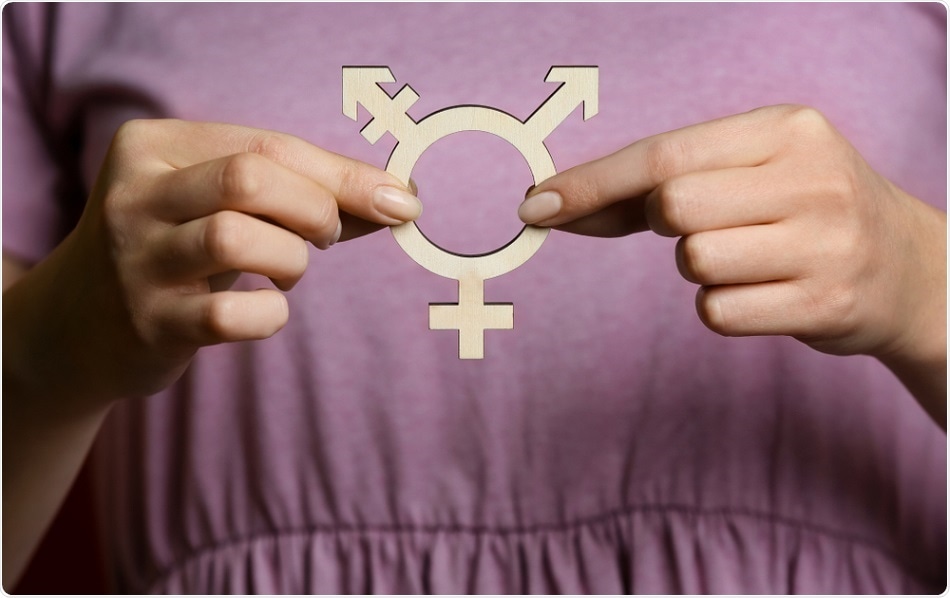 By Sally Robertson, B.Sc.Oct 7 2019
By Sally Robertson, B.Sc.Oct 7 2019
Medical
Hundreds of trans people regret changing their gender, says trans acti…
MDHan
0
7,941
2021.01.22 21:49
Hundreds of trans people regret changing their gender, says trans activist
 Aquarius Studio | Shutterstock
Aquarius Studio | Shutterstock
Charlie Evans, aged 28 years, from Newcastle, UK, says hundreds of people who want to return to their original gender have contacted her since she announced her detransition and stopped taking her hormone therapy.
Evans was born female but decided to live as a male for almost ten years before detransitioning. She says she has received a huge response since announcing that she would no longer be identifying as a male or taking her testosterone therapy. Hundreds of people – just 30 in the Newcastle area alone – have contacted her seeking help, she says, either asking her to speak out or to help them find support over their decision to detransition.
"I'm in communication with 19 and 20-year-olds who have had full gender reassignment surgery who wish they hadn't, and their dysphoria hasn't been relieved, they don't feel better for it. They don't know what their options are now.
Charlie Evans
There is a lack of information about how many people regret transitioning
The number of young people seeking gender transition is at the highest it has ever been, but little is reported about how many of them regret the decision later, finding they are unhappy with their new gender.
Evans, who made her story public last year, says she is shocked by the number of people who have contacted her saying they have found themselves in a similar position to her.
The people who contact her share similar characteristics:
"They tend to be around their mid-20s, they're mostly female and mostly same-sex attracted, and often autistic as well.
Charlie Evans
“I felt I had to do something”
One 21-year-old woman who reached out to Evans said gender reassignment did not help her gender dysphoria and that she has therefore also detransitioned.
"She said she felt shunned by the LGBT community for being a traitor. So I felt I had to do something," Evans said.
The woman had identified as male since the age of 13. After taking testosterone therapy, her voice deepened, she grew facial hair and her body started to change. She was due to undergo breast-removal surgery this summer, but started to change her mind in May and decided to stop taking her hormones and to identify as female again.
The woman, who asked to be called Ruby says:
"I didn't think any change was going to be enough in the end and I thought it was better to work on changing how I felt about myself, than changing my body. I've seen similarities in the way I experience gender dysphoria, in the way I experience other body image issues."
For example, Ruby says she has also had an eating disorder, but that she does not think the problem was explored properly in the therapy sessions she attended through gender identity services.
"When I was at my gender clinic to get referred for hormones, we had a session where I went over my mental health issues and I told them about my eating disorder and they didn't suggest that that could maybe connected with my gender dysphoria," she says.
"For everyone who has gender dysphoria, whether they are trans or not, I want there to be more options for us because I think there is a system of saying, 'okay here's your hormones, here's your surgery, off you go'. I don't think that's helpful for anyone."
The Detransition Advocacy Network
Evans is now setting up a charity called The Detransition Advocacy Network, which will hold its first meeting in Manchester at the end of this month. The non-profit organization aims to provide guidance to trans people who have undergone gender reassignment, but now want to change back to their original gender.
Evans, who is a freelance science journalist, has previously tweeted: “We know that there is no such thing as a boy brain or a girl brain or that you can be born with the wrong one. We know hormone blockers are unsafe because we need testosterone and oestrogen for development. We need to #BeBrave, and stand together.”
Gender transition offered to children as young as 3 or 4
NHS facilities in the UK have started to offer guidance on gender transition to children as young as 3 or 4 years old and participation in gender transition programs has skyrocketed.
One center, called the Tavistock and Portman NHS Trust, says that compared with ten years ago, participation has skyrocketed, by 3,200%, with the rate for girls up by 5,337%.
With its records showing that referrals are more common than ever, the center suggests that cases of destransition will also rise.
In a statement, one trust spokesperson disputed Evan’s description saying:
"Decisions about physical interventions made in our care are arrived at after a thorough exploration process. While some of our patients may decide not to pursue physical treatment or drop out of treatment, the experience of regret described here is rarely seen.
However, some people think further research and more discussions are needed surrounding the topic of gender dysphoria, as well as potential alternatives to gender transition.





